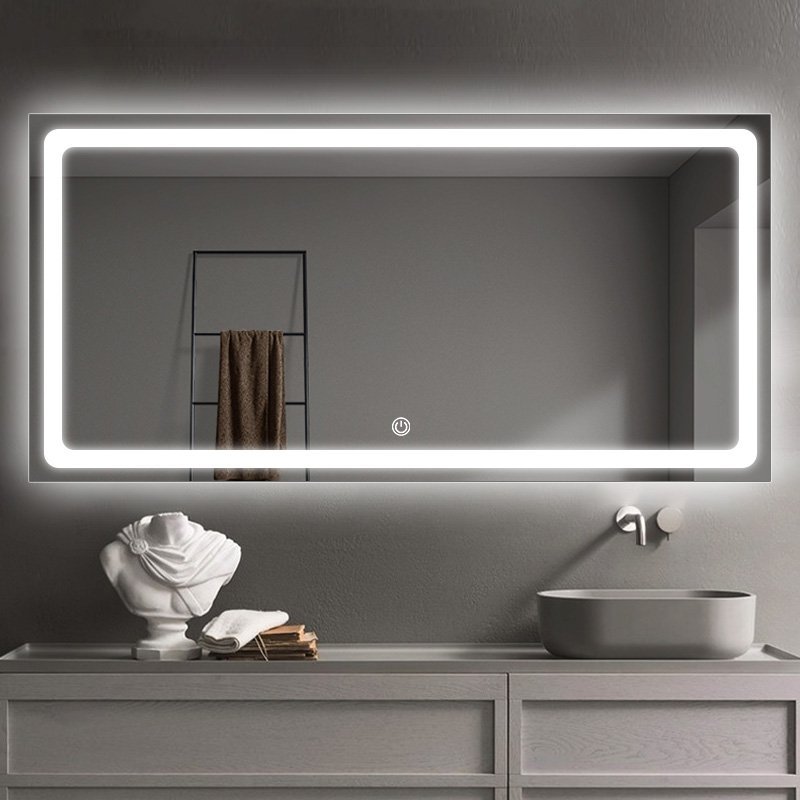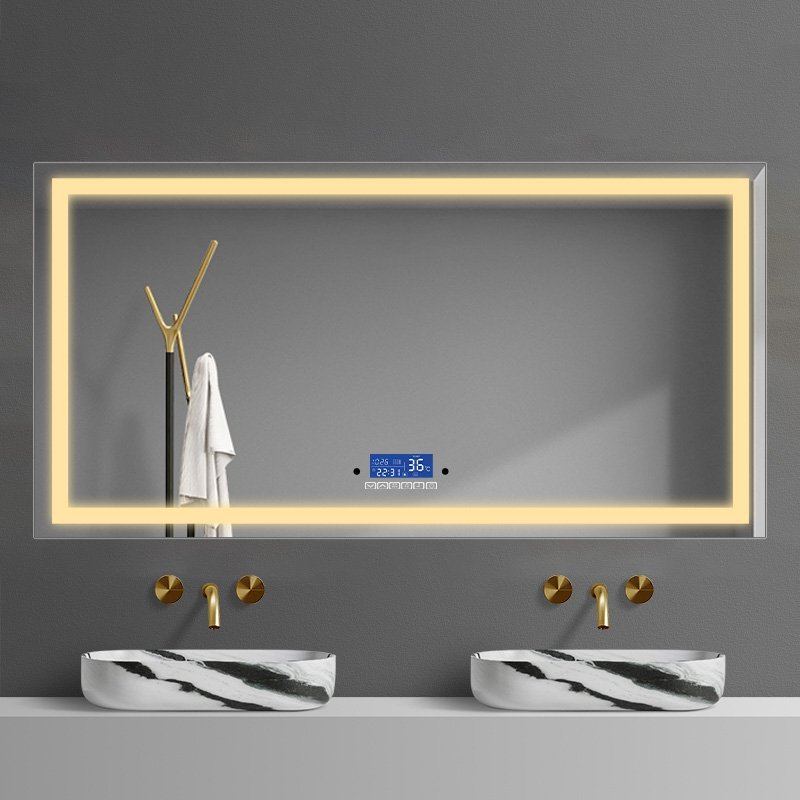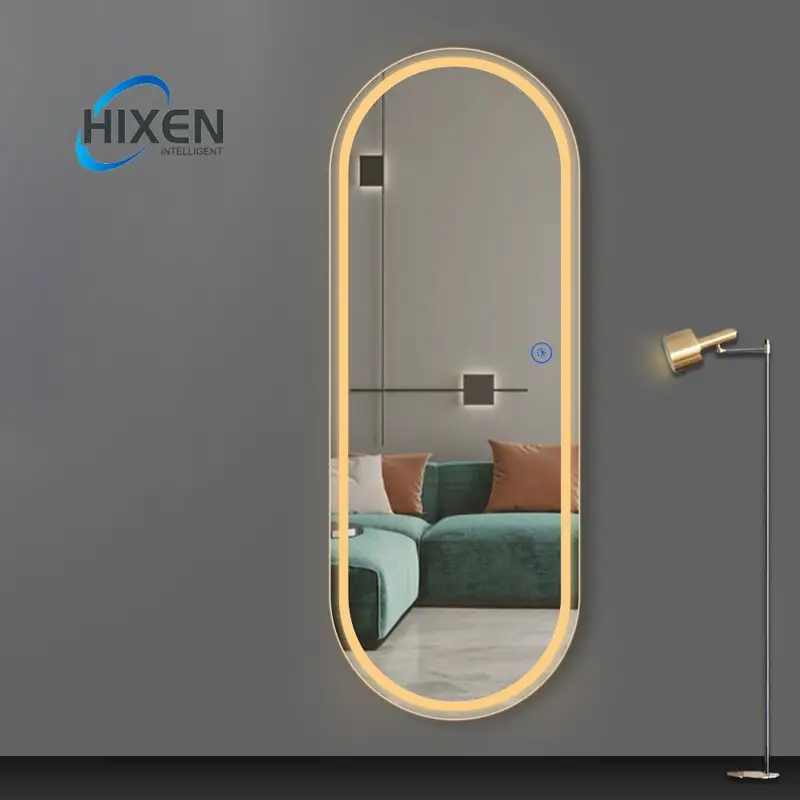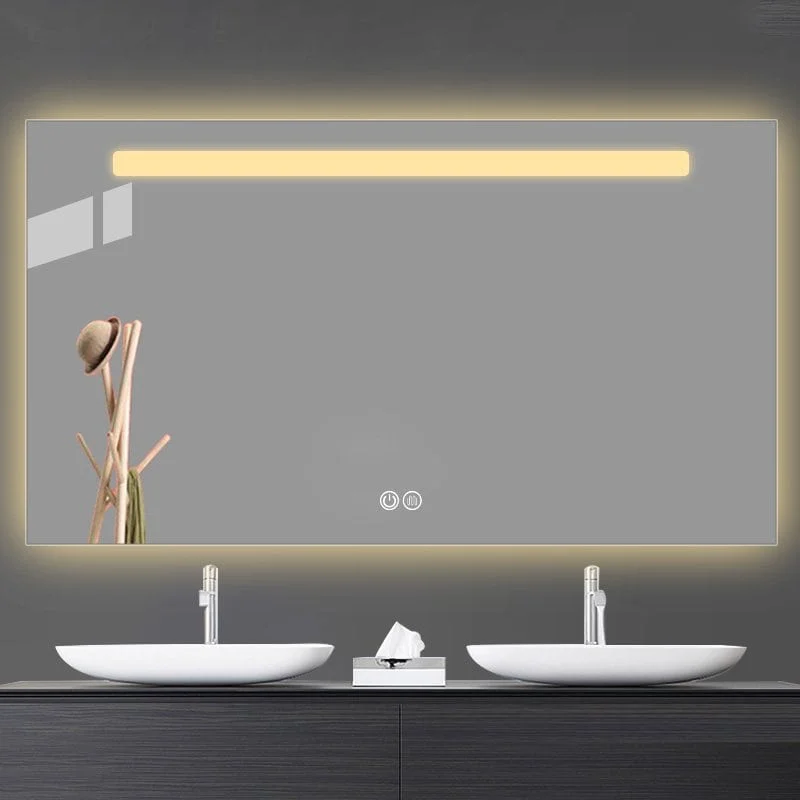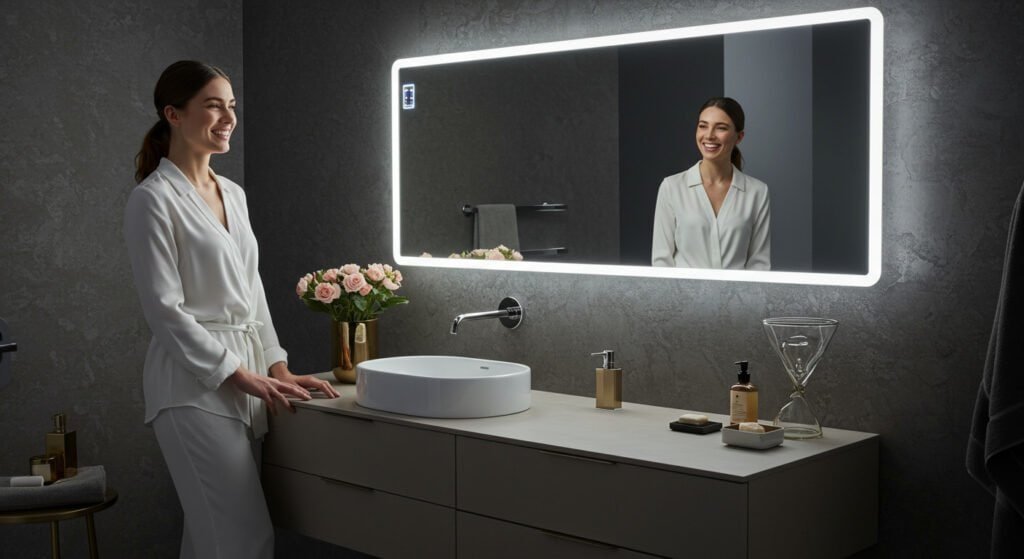|
Conseguir tu Trinidad Audio jugador listo...
|
¿Alguna vez te has preguntado por qué algunos espejos parecen distorsionar tu reflejo mientras que otros proporcionan imágenes nítidas?? La respuesta a menudo reside en un aspecto crucial pero que a menudo se pasa por alto.: espesor del espejo. Entonces, ¿cuál es el grosor estándar del vidrio espejo??
La industria del espejo ha establecido pautas claras sobre los rangos de grosor estándar, Aunque estas especificaciones pueden variar según la aplicación y la ubicación. Para aplicaciones residenciales, espejo de grosor de vidrio 3 mm es generalmente adecuado para pequeño, espejos de maquillaje de escritorio; 4mm & 5MM es generalmente adecuado para espejos de baño; 4MM es generalmente adecuado para espejos de longitud completa. (En pulgadas, Esto se traduce en aproximadamente 1/8 de pulgada a 1/4 de pulgada.) Los espejos de grado profesional mantienen un grosor constante en toda su superficie, Garantizar la calidad de reflexión uniforme e integridad estructural.
En esta guía, Responderemos a sus preguntas, como “¿El grosor de un espejo es importante??” y “¿Cuál es el mejor grosor para un espejo de baño??” También cubriremos cómo el grosor afecta la calidad del espejo y cómo tomar una decisión informada al comprar un espejo para cualquier aplicación.

Requisitos de espesor del espejo de baño
Los entornos de baño presentan desafíos únicos para las instalaciones de espejo, requiriendo una cuidadosa consideración de las especificaciones de espesor. El grosor óptimo para los espejos de baño generalmente comienza a 4 mm para instalaciones estándar., Pero varios factores influyen en este requisito:
La resistencia a la humedad se vuelve crucial en la configuración del baño, donde los espejos deben soportar la exposición constante de humedad. Espejos más gruesos, particularmente aquellos de 5 mm y más, generalmente ofrece una mejor estabilidad en entornos húmedos. El grosor del espejo para aplicaciones de baño también afecta los métodos de instalación, con espejos más pesados que requieren sistemas de montaje más robustos.
Los instaladores profesionales recomiendan un grosor de 6 mm para espejos de baño que excedan al menos 4 mm, Garantizar el apoyo adecuado y la prevención de posibles problemas de deformación.
¿El grosor de un espejo es importante??
La respuesta es un rotundo sí. El grosor del espejo no solo afecta la durabilidad, sino también el atractivo estético y la calidad del espejo. Si buscas una alta calidad, espejo duradero, 5mm es una elección sabia.
Atención - Recuerde: 3MM es generalmente adecuado para pequeño, espejos de maquillaje de escritorio; 4mm & 5MM es generalmente adecuado para espejos de baño; 4MM es generalmente adecuado para espejos de longitud completa.
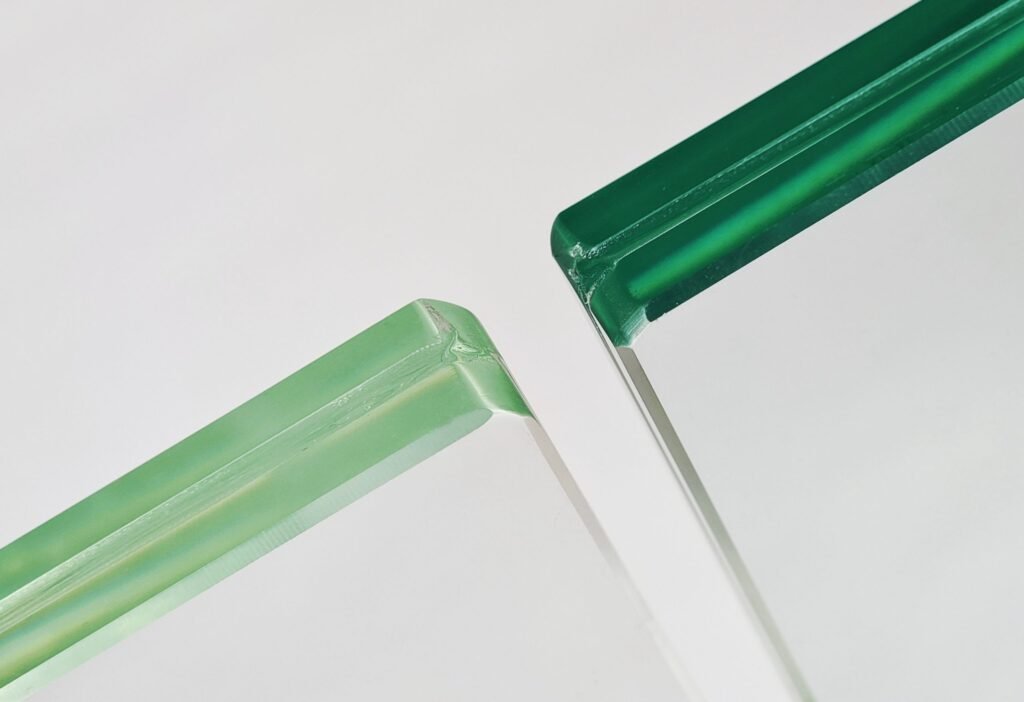
Dimensiones de espejo y correlación de espesor
Espejos que miden hasta 24 incógnita 36 Las pulgadas funcionan bien con un grosor de 4 mm, proporcionar un apoyo adecuado mientras permanece rentable. A medida que aumentan las dimensiones a 24 incógnita 48 pulgadas, 5El grosor mm se hace necesario para evitar la deformación. Espejos que exceden 36 incógnita 60 Las pulgadas generalmente requieren un espesor de 5/6 mm para garantizar un rendimiento y seguridad óptimas.
Las instalaciones comerciales de espejo enfrentan diferentes desafíos y requieren espejos de mayor tamaño en comparación con las aplicaciones residenciales. Para soportar el uso frecuente y los impactos potenciales, El grosor estándar del vidrio espejo en entornos comerciales generalmente comienza en 6 mm, con algunos escenarios especializados que requieren especificaciones más gruesas.
Los códigos de construcción a menudo tienen requisitos de grosor específicos para instalaciones comerciales (especialmente en espacios públicos), y estas regulaciones están diseñadas para aumentar la seguridad y la durabilidad., a veces requiere respaldo de seguridad o vidrio templado.
¿Qué es un espejo de tamaño estándar??
Espejos de baño: 24″x36″, 30″x40″, o 36″x48″ son tamaños típicos para espejos de baño. Estos tamaños a menudo se combinan bien con un grosor estándar de vidrio espejo (4mm a 5 mm).
Sala de estar y espejos decorativos: 48″x60″ o más grandes son comunes para espacios grandes como salas de estar o entradas.

Consideraciones de espejo especializado
Los espejos LED han revolucionado el diseño del baño, pero requieren una cuidadosa consideración de grosor. Estos accesorios innovadores generalmente utilizan vidrio de 4/5 mm más grueso para garantizar que la difusión de la luz de la tira LED mientras mantiene la integridad estructural. El grosor adicional proporciona el soporte necesario para los elementos LED, Sistemas de defogger, y otras características inteligentes sin comprometer la calidad de reflexión.
Los espejos biselados agregan sofisticación a cualquier espacio, Pero su producción requiere consideraciones específicas de grosor. El proceso de biselado afecta el grosor del borde, Normalmente, lo que requiere un vaso base de al menos 4 mm. Esto garantiza un material adecuado para crear bordes biselados elegantes mientras se mantiene la integridad estructural.. Los fabricantes profesionales controlan cuidadosamente la profundidad del biselado para preservar la resistencia del espejo mientras logran los efectos estéticos deseados.
Son los espejos biselados más caros?
Espejos biselados, que tienen bordes que se cortan en ángulo, son generalmente más caros que los espejos de bordes planos. El costo adicional se debe a la artesanía adicional involucrada en la creación de los bordes biselados.
¿Qué tan grueso es un espejo de 2 vías??
Los espejos de dos vías representan una categoría especializada que requiere consideraciones de grosor específicas. Estos espejos generalmente varían de 3 mm a 6 mm de espesor, Dependiendo de su aplicación. El grosor óptimo depende de la distancia de visualización, Condiciones de iluminación, y niveles de transparencia deseados. Los espejos de dos vías deben equilibrar la reflectividad con transparencia, Hacer que la selección de espesor sea crucial para una funcionalidad adecuada.
Lo que hace que un espejo parezca barato?
Vidrio delgado: Un espejo delgado puede doblarse o deformarse, creando una reflexión distorsionada. A menudo se ve endeble y carece de la integridad estructural de los espejos más gruesos..
Recubrimientos pobres: Ahora hay dos capas comunes: aluminio, plata. Si un espejo tiene un recubrimiento reflectante barato o desigual(como aluminio), puede parecer nublado o tener decoloración.
Marco de baja calidad: Los espejos con marcos delgados o endeble también pueden parecer más baratos. Un espejo de alta calidad a menudo tiene un marco sustancial que complementa el vidrio.

Selección de cuadros y su impacto en los requisitos de espesor
La selección de marco de espejo influye significativamente en los requisitos de espesor. Mientras que los marcos proporcionan soporte adicional, potencialmente permitiendo un vidrio ligeramente más delgado en algunas aplicaciones, Los diseños sin marco a menudo requieren un mayor grosor para garantizar la estabilidad. Las instalaciones modernas sin marco generalmente requieren un grosor del espejo en CM para variar desde 0.4 a 0.6 centímetros, Proporcionar apoyo adecuado sin un marco visible.
La resistencia del material del marco se correlaciona directamente con el grosor del espejo requerido. Los marcos de metal robustos pueden soportar espejos ligeramente más delgados en comparación con aluminaciones livianas o plástico. Sin embargo, Los instaladores profesionales recomiendan mantener las especificaciones de grosor estándar independientemente de la selección de cuadros para garantizar la durabilidad a largo plazo.
Evaluación de calidad: Más allá de las mediciones de grosor básico
La calidad del sustrato de vidrio afecta significativamente la claridad de la reflexión, independientemente del grosor. Los espejos premium utilizan vidrio bajo de hierro, reduciendo el ligero tinte verde común en vidrio estándar. La calidad del proceso de plata afecta el brillo y la durabilidad de la reflexión, con espejos premium con recubrimientos protectores mejorados.
La calidad de acabado de borde indica una precisión general de fabricación. Los espejos de grado profesional cuentan con bordes cuidadosamente terminados, Reducir el riesgo de astillarse y garantizar un manejo seguro. La calidad del material de respaldo afecta la resistencia y durabilidad de la humedad, con espejos premium utilizando recubrimientos protectores mejorados.
Cómo elegir el grosor del espejo derecho?
Al seleccionar el espesor del espejo derecho, Considere lo siguiente:
- Para baños: Optar por 4mm a 5 mm grosor para la durabilidad y la reflexión clara.
- Para espejos más grandes: Espejos más grandes (encima 5 pies) a menudo requerir 4mm a 6 mm Grosor para el soporte estructural.
- Para espejos decorativos: Espejos con un grosor delgado (p.ej. 3mm) Parece más ligero y más moderno y son ideales para la decoración en habitaciones más grandes..
- Para uso comercial: Los espejos de grado profesional deben ser de espesor constante para una calidad de reflexión óptima y son adecuados para su uso con espejos de vidrio templado o espejos de 5 mm de espesor.
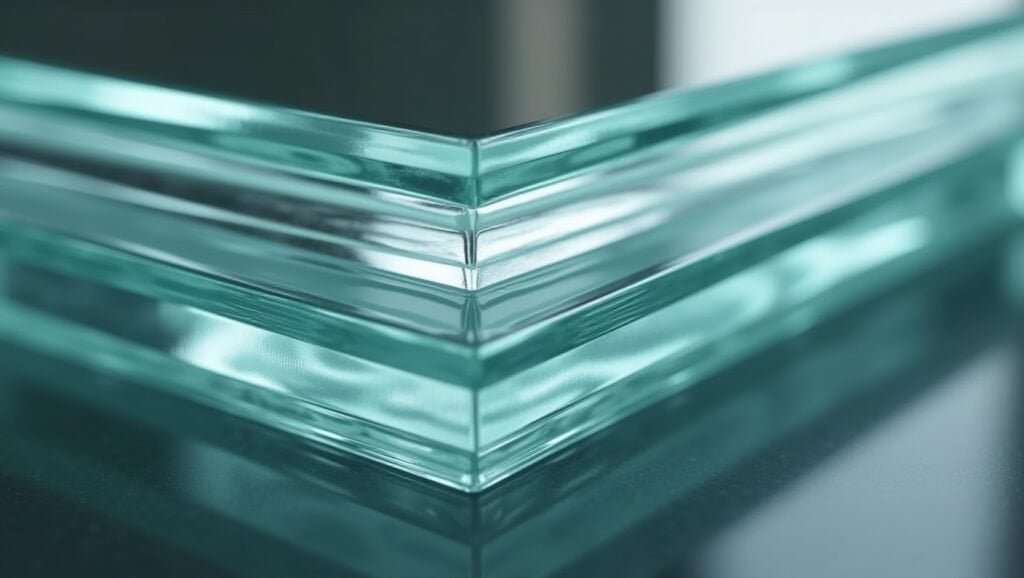
Conclusión
Comprender los requisitos de espesor del espejo estándar resultan esenciales para instalaciones exitosas. Si seleccionando espejos para baños residenciales, espacios comerciales, o aplicaciones especializadas, La especificación de grosor adecuada garantiza un rendimiento óptimo y longevidad.
Para obtener más información sobre la selección de espejo y las mejores prácticas de instalación, Póngase en contacto con nuestro equipo de expertos. Proporcionamos una guía integral sobre las especificaciones del espejo, Asegurar un rendimiento óptimo para sus requisitos de aplicación específicos.
Listo para encontrar el espejo perfecto para tu espacio? Explore nuestra extensa colección de espejos de alta calidad hoy y elija el grosor correcto para su hogar o negocio!
- ¿Cuáles son los beneficios del espejo LED??
- ¿Cuál es la mejor luz para el espejo de vanidad??
- Para aprender a elegir el espejo de baño derecho, haga clic aquí.
- Para aprender a instalar un espejo elija aquí.
- Para aprender a elegir el espejo de tamaño correcto, haga clic aquí.
- Para aprender cómo se hacen los espejos, haga clic aquí.
- Haga clic aquí y aprenderá por qué nos vemos mejor en los espejos.
- Haga clic aquí, aprenderá sobre la parte superior 10 Fabricantes de espejo LED para 2024.






